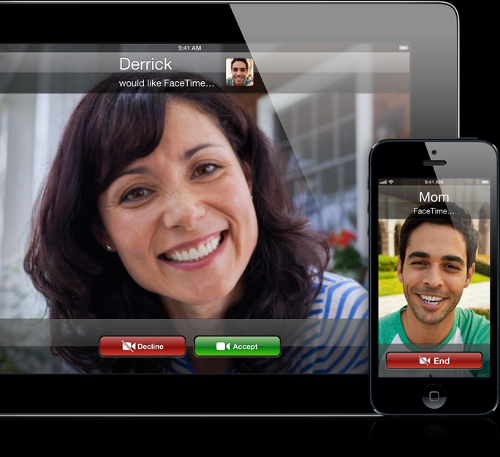AT&T has relented slightly on its restrictions on customers using Apple’s FaceTime service. But it’s still blocking some users and won’t have staved off accusations that it’s breaching net neutrality rules.
The network angered users by blocking FaceTime over cellular (non-WiFi) connections to all but the customers who had signed up to its new shared data plans. Those allow everyone at a household to pool their data use, but with a fixed monthly limit depending on the plan.
Not surprisingly, critics said this flew in the face of net neutrality as it meant the affected customers were being blocked from using their internet data for a legal service. The move went down particularly badly as it appeared the restriction was a way of encouraging people on old data plans to move to the new ones, in many cases paying more overall. It also looks bad to be blocking a service that could discourage people from making — and paying for — voice calls through AT&T’s network.
For its part AT&T argued that Federal Communication Commission guidelines on net neutrality don’t apply to pre-installed applications such as Apple iPhones coming with FaceTime already on them. Opponents have questioned whether such an exception truly exists.
AT&T has now announced that anyone with an LTE device (in other words, the iPhone 5) can use FaceTime over their cellular connection if they are on any form of data plan with a monthly limit. Those still on unlimited plans and those with earlier iPhones remain restricted to using Wi-Fi for FaceTime.
The company says it needed both the previous and continuing restrictions to help deal with the impact of FaceTime launching and hitting AT&T — the biggest carrier for iPhones — particularly hard. That didn’t hold much weight among those who commented on the page with AT&T’s latest statement, the second of whom (presumably an iPhone 4 or 4S user) put the case succinctly:
If you sign someone up for a contract that offers, say, 2GB of data per month, you should prepare your network for them using all 2GB of that. And you should not give a damn what that data that is.
Meanwhile three campaign groups who’ve already formally warned AT&T they will file a complaint with the FCC over the issue say they aren’t impressed by the “relaxed” restrictions. Free Press, Public Knowledge and the Open Technology Institute say that the only thing that will stop them proceeding with a complaint is AT&T letting all customers access FaceTime without restriction.

